- Home
- Brandon Sanderson
Skyward Page 2
Skyward Read online
Page 2
“Their heading is…Chaser, they’re heading this way. They’re flying straight for Igneous. Stars help us. They’ve located the base!”
Father lowered his radio.
“Large Krell breach sighted,” the woman’s voice said through the radio. “Everyone, this is an emergency. An extremely large group of Krell has breached the debris field. All fighters report in. They’re coming for Alta!”
Father took my arm. “Let’s get you back.”
“They need you!” I said. “You’ve got to go fight!”
“I have to get you to—”
“I can get back myself. It was a straight trip through those tunnels.”
Father glanced toward the debris again. “Chaser!” a new voice said over the radio. “Chaser, you there?”
“Mongrel?” Father said, flipping a switch and raising his radio. “I’m up on the surface.”
“You need to talk some sense into Banks and Swing. They’re saying we need to flee.”
Father cursed under his breath, flipping another switch on the radio. A voice came through. “—aren’t ready for a head-on fight yet. We’ll be ruined.”
“No,” another woman said. “We have to stand and fight.”
A dozen voices started talking at once.
“Ironsides is right,” my father said into the line, and—remarkably—they all grew quiet.
“If we let them bomb Igneous, then we lose the apparatus,” my father said. “We lose the manufactories. We lose everything. If we ever want to have a civilization again, a world again, we have to stand here!”
I waited, silent, holding my breath, hoping he would be too distracted to send me away. I trembled at the idea of a battle, but I still wanted to watch it.
“We fight,” the woman said.
“We fight,” said Mongrel. I knew him by name, though I hadn’t met him. He was my father’s wingmate. “Hot rocks, this is a good one. I’m going to beat you into the sky, Chaser! Just you watch how many I bring down!”
The man sounded eager, maybe a little too excited, to be heading into battle. I liked him immediately.
My father debated only a moment before pulling off his light-line bracelet and stuffing it into my hands. “Promise you’ll go back straightaway.”
“I promise.”
“Don’t dally.”
“I won’t.”
He raised his radio. “Yeah, Mongrel, we’ll see about that. I’m running for Alta now. Chaser out.”
He dashed across the dusty ground in the direction he’d pointed earlier. Then he stopped and turned back. He pulled off his pin and tossed it—like a glittering fragment of a star—to me before continuing his run toward the hidden base.
I, of course, immediately broke my promise. I climbed down into the crack but hid there, clutching Father’s pin, and watched until I saw the starfighters leave Alta and streak toward the sky. I squinted and picked out the dark Krell ships swarming down toward them.
Finally, showing a rare moment of good judgment, I decided I’d better do what my father had told me. I used the light-line to lower myself into the cavern, where I recovered my backpack and headed into the tunnels. I figured if I hurried, I could get back to my clan in time to listen to the broadcast of the fight on our single communal radio.
I was wrong though. The hike was longer than I remembered, and I did manage to get lost. So I was wandering down there, imagining the glory of the awesome battle happening above, when my father infamously broke ranks and fled from the enemy. His own flight shot him down in retribution. By the time I got home, the battle had been won, my father was gone.
And I’d been branded the daughter of a coward.
I stalked my enemy carefully through the cavern.
I’d taken off my boots so they wouldn’t squeak. I’d removed my socks so I wouldn’t slip. The rock under my feet was comfortably cool as I took another silent step forward.
This deep, the only light came from the faint glow of the worms on the ceiling, feeding off the moisture seeping through cracks. You had to sit for minutes in the darkness for your eyes to adjust to that faint light.
Another quiver in the shadows. There, near those dark lumps that must be enemy fortifications. I froze in a crouch, listening to my enemy scratch the rock as he moved. I imagined a Krell: a terrible alien with red eyes and dark armor.
With a steady hand—agonizingly slow—I raised my rifle to my shoulder, held my breath, and fired.
A squeal of pain was my reward.
Yes!
I patted my wrist, activating my father’s light-line. It sprang to life with a reddish-orange glow, blinding me for a moment.
Then I rushed forward to claim my prize: one dead rat, speared straight through.
In the light, shadows I’d imagined as enemy fortifications revealed themselves as rocks. My enemy was a plump rat, and my rifle was a makeshift speargun. Nine and a half years had passed since that fateful day when I’d climbed to the surface with my father, but my imagination was as strong as ever. It helped relieve the monotony, to pretend I was doing something more exciting than hunting rats.
I held up the dead rodent by its tail. “Thus you know the fury of my anger, fell beast.”
It turned out that strange little girls grow up to be strange young women. But I figured it was good to practice my taunts for when I really fought the Krell. Gran-Gran taught that a great warrior knew how to make a great boast to drive fear and uncertainty into the hearts of her enemies.
I tucked my prize away into my sack. That was eight so far—not a bad haul. Did I have time to find another?
I glanced at my light-line—the bracelet that housed it had a little clock next to the power indicator. 0900. Probably time to turn back; I couldn’t miss too much of the school day.
I slung my sack over my shoulder, picked up my speargun—which I’d fashioned from salvaged parts I’d found in the caverns—and started the hike homeward. I followed my own hand-drawn maps, which I was constantly updating in a small notebook.
A part of me was sad to have to return, and leave these silent caverns behind. They reminded me of my father. Besides, I liked how…empty it all was. Nobody to mock me, nobody to stare, nobody to whisper insults until I was forced to defend my family honor by burying a fist in their stupid face.
I stopped at a familiar intersection where the floor and ceiling gave way to strange metal patterns. Circular designs marked with scientific writing covered both surfaces; I’d always thought they must be ancient maps of the galaxy. On the far side of the room, an enormous, ancient tube emerged from the rock—one of many that moved water between the caverns, cleansing it and using it to cool machinery. A seam dripped water into a bucket I’d left, and it was half full, so I took a long drink. Cool and refreshing, with a tinge of something metallic.
We didn’t know much about the people who had built this machinery. Like the rubble belt, it had been here already when our small fleet crashed on the planet. They’d been humans, as the writings on places like this room’s ceiling and floor were in human languages. But how distantly related they were to us was a mystery even now. None of them were still around, and the melted patches and ancient wrecks on the surface indicated that they had suffered their own war.
I poured the rest of the water into my canteen, then gave the large tube a fond pat before replacing the bucket and moving on. The machinery seemed to respond to me with a distant, familiar thrumming. I followed that sound and eventually approached a glowing break in the stone on my left.
I stepped up to the hole and looked out on Igneous. My home cavern and the largest of the underground cities that made up the Defiant League. My perch was high, providing me with a stunning view of a large cave filled with boxy apartments built like cubes splitting off one another.
My father’s dream had come true. In d
efeating the Krell that day over nine years ago, those fledgling starfighter pilots had inspired a nation. Dozens of once-nomadic clans had congregated, colonizing Igneous and the caverns around it. Each clan had its own name still, traced back to the ship or section of the ship they’d worked on. My clan was the Motorskaps—from the old words for engine crew.
Together, we called ourselves Defiants. A name taken from our original flagship.
Of course, in gathering together, we had drawn the attention of the Krell. The aliens were still determined to destroy humankind, so the war continued, and we needed a constant stream of starfighters and pilots to protect our burgeoning nation.
Towering over the buildings of Igneous was the apparatus: ancient forges, refineries, and manufactories that pumped molten rock from below, then created the parts to build starfighters. The apparatus was both amazing and unique; though machinery in other caverns provided heat, electricity, or filtered water, only the apparatus of Igneous was capable of complex manufacturing.
Heat poured through the crack, making my forehead bead with sweat. Igneous was a sweltering place, with all those refineries, factories, and algae vats. And though it was well lit, it somehow always felt gloomy inside, with that red-orange light from the refineries shining on everything.
I left the crack and walked to an old maintenance locker I’d discovered in the wall here. Its hatch looked—at first glance—like any other section of the stone tunnel, and so was relatively secure. I popped it open, revealing my few secret possessions. Some parts for my speargun, my spare canteen, and my father’s old pilot’s pin. I rubbed that for good luck, then placed my light-line, map book, and speargun in the locker.
I retrieved a crude stone-tipped spear, clicked the hatch closed, then slung my sack over my shoulder. Eight rats could be surprisingly awkward to carry, particularly when—even at seventeen—you had a body that refused to grow beyond a hundred and fifty-one centimeters.
I hiked down to the normal entrance into the cavern. Two soldiers from the ground troops—which barely ever did any real fighting—guarded the way in. Though I knew them both by their first names, they still made me stand to the side as they pretended to call for authorization for me to enter. Really, they just liked making me wait.
Every day. Every scudding day.
Eventually, Aluko stepped over and began looking through my sack with a suspicious eye.
“What kind of contraband do you expect I’m bringing into the city?” I asked him. “Pebbles? Moss? Maybe some rocks that insulted your mother?”
He eyed my spear as if wondering how I’d managed to catch eight rats with such a simple weapon. Well, let him wonder. Finally, he tossed the sack back to me. “On your way, coward.”
Strength. I lifted my chin. “Someday,” I said, “you will hear my name, and tears of gratitude will spring to your eyes as you think of how lucky you are to have once assisted the daughter of Chaser.”
“I’d rather forget I ever knew you. On your way.”
I held my head high and walked into Igneous, then made my way toward the Glorious Rises of Industry, the name of my neighborhood. I’d arrived at shift change, and passed workers in jumpsuits of a variety of colors, each marking their place in the great machine that kept the Defiant League—and the war against the Krell—functioning. Sanitation workers, maintenance techs, algae vat specialists.
No pilots, of course. Off-duty pilots stayed in the deep caverns on reserve, while the on-duty ones lived in Alta, the very base my father had died protecting. It was no longer secret, but had grown into a large installation on the surface, housing dozens of ships along with the pilot command structure and training facilities. That was where I would live starting tomorrow, once I passed the test and became a cadet.
I walked under a large metal statue of the First Citizens: a group of people holding symbolic weapons and reaching toward the sky in defiant poses, ships rising behind them trailing streaks of metal. Though it depicted those who had fought at the Battle of Alta, my father wasn’t among them.
The next turn took me to our apartment, one of many metal cubes sprouting from a larger central one. Ours was small, but big enough for three people, particularly since I spent days at a time out in the caverns, hunting and exploring.
My mother wasn’t home, but I found Gran-Gran on the roof, rolling algae wraps to sell at our cart. An official job was forbidden to my mother because of what my father had supposedly done, so we had to get by doing something unconventional.
Gran-Gran looked up, hearing me. Her name was Becca Nightshade—I shared her last name—but even those who barely knew her called her Gran-Gran. She had lost nearly all her sight a few years ago, her eyes having gone a milky white. She was hunched over and worked with sticklike arms. But she was still the strongest person I knew.
“Oooh,” she said. “That sounds like Spensa! How many did you get today?”
“Eight!” I dumped my spoils before her. “And several are particularly juicy.”
“Sit, sit,” Gran-Gran said, pushing aside the mat filled with wraps. “Let’s get these cleaned and cooking! If we hurry, we can have them ready for your mother to sell today, and I can get to tanning the skins.”
I probably should have gone off to class—Gran-Gran had forgotten again—but really, what was the point? These days, we were just getting lectures on the various jobs one could do in the cavern. I had already chosen what I’d be. Though the test to become a pilot was supposed to be hard, Rodge and I had been studying for ten years. We’d pass for sure. So why did I need to hear about how great it was to be an algae vat worker or whatever?
Besides, since I needed to spend time hunting, I missed a lot of classes, so I wasn’t suited to any other jobs. I made sure to attend the classes that had to do with flying—ship layouts and repair, mathematics, war history. Any other class I managed to make was a bonus.
I settled down and helped Gran-Gran skin and gut the rats. She was clean and efficient as she worked by touch.
“Who,” she asked, head bowed, eyes mostly closed, “do you want to hear about today?”
“Beowulf!”
“Ah, the King of the Geats, is it? Not Leif Eriksson? He was your father’s favorite.”
“Did he kill a dragon?”
“He discovered a new world.”
“With dragons?”
Gran-Gran chuckled. “A feathered serpent, by some legends, but I have no story of them fighting. Now, Beowulf, he was a mighty man. He was your ancestor, you know. It wasn’t until he was old that he slew the dragon; first he made his name fighting monsters.”
I worked quietly with my knife, skinning and gutting the rats, then slicing the meat and tossing it into a pot to be stewed. Most people in the city lived on algae paste. Real meat—from cattle or pigs raised in caverns with special lighting and environmental equipment—was far too rare for everyday eating. So they’d trade for rats.
I loved the way Gran-Gran told stories. Her voice grew soft when the monsters hissed, and bold when the heroes boasted. She worked with nimble fingers as she spun the tale of the ancient Viking hero who came to aid the Danes in their time of need. A warrior everybody loved; one who fought bravely, even against a larger and mightier foe.
“And when the monster had slunk away to die,” Gran-Gran said, “the hero, he held aloft Grendel’s entire arm and shoulder as a grisly trophy. He’d avenged the blood of the fallen, proving himself with strength and valor.”
Clinking sounded from below in our apartment. My mother was back. I ignored that for now. “He ripped the arm free,” I said, “with his hands?”
“He was strong,” Gran-Gran said, “and a warrior true. But he was of the oldenfolk, who fought with hands and sword.” She leaned forward. “You will fight with nimbleness of both hand and wit. With a starship to pilot, you won’t need to rip any arms off. Now, have you been do
ing your exercises?”
I rolled my eyes.
“I saw that,” Gran-Gran said.
“No you didn’t.”
“Close your eyes.”
I closed my eyes and tipped my head back, face toward the ceiling of the cavern, far above.
“Listen to the stars,” Gran-Gran said.
“I only hear—”
“Listen to the stars. Imagine yourself flying.”
I sighed. I loved Gran-Gran and her stories, but this part always bored me. Still, I tried doing as she had taught me—sitting there with my head tipped back, I tried to imagine that I was soaring upward. I tried to let everything else fade around me, and to picture stars shining brightly above.
“I used to do this exercise,” Gran-Gran said softly, “with my mother, on the Defiant in the engine rooms. We worked the flagship itself, a battle cruiser larger than this entire cavern. I’d sit and listen to the hum of the engines, and to something beyond that. The stars.”
I tried to imagine her as a little girl, and somehow that helped. With my eyes closed, I felt as if I were almost floating. Reaching upward…
“We of the engine crew,” Gran-Gran said, “were odd, among the other ship crews. They thought we were strange, but we kept the ship moving. We made it travel the stars. Mother said it was because we could hear them.”
I thought…just for a moment…that I heard something out there. My imagination perhaps? A distant, pure sound…
“Even after we crashed here, we people of the engines stayed together,” Gran-Gran said. “Clan Motorskaps. If others say you’re strange, it’s because they remember this, and maybe fear us. This is your heritage. The heritage of warriors who traveled the sky, and will return to the sky. Listen.”
I let out a long, calming sigh as it—whatever I thought I’d heard—faded. I opened my eyes and was shocked, for a second, to find I was back on that rooftop, surrounded by the ruddy light of Igneous.
“We maintained the engines,” I said, “and moved the ship? What does that have to do with being warriors? Wouldn’t it have been better to fire the weapons?”

 Steelheart
Steelheart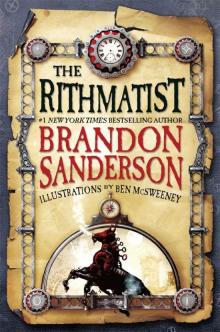 The Rithmatist
The Rithmatist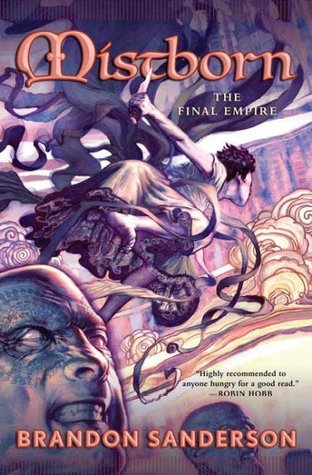 Mistborn: The Final Empire
Mistborn: The Final Empire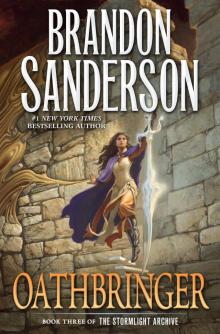 Oathbringer
Oathbringer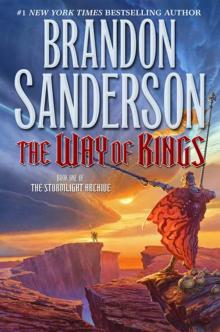 The Way of Kings
The Way of Kings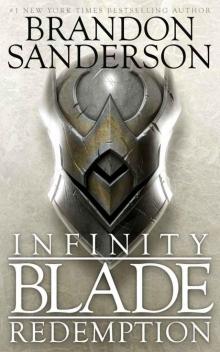 Redemption
Redemption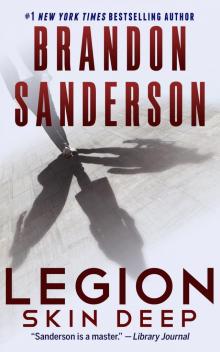 Skin Deep
Skin Deep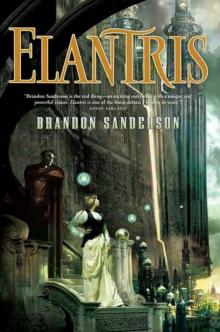 Elantris
Elantris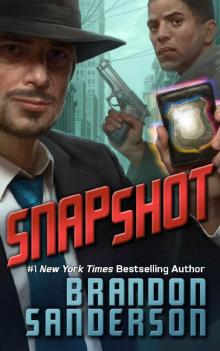 Snapshot
Snapshot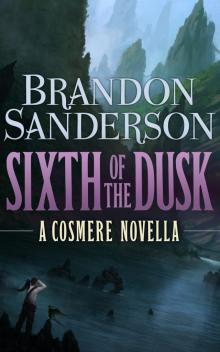 Sixth of the Dusk (Cosmere)
Sixth of the Dusk (Cosmere)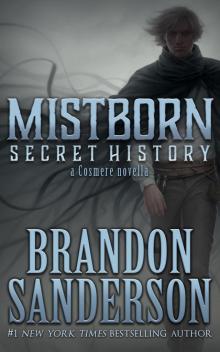 Mistborn: Secret History
Mistborn: Secret History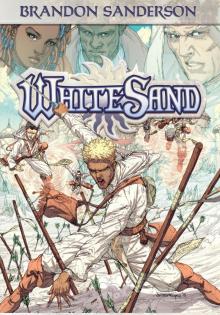 White Sand, Volume 1
White Sand, Volume 1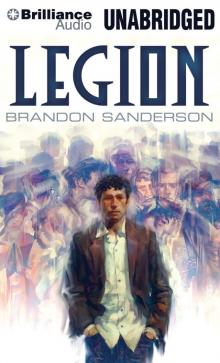 Legion
Legion The Well of Ascension
The Well of Ascension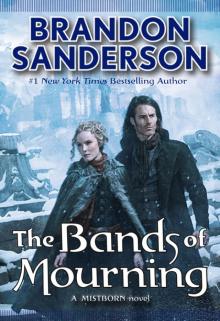 The Bands of Mourning
The Bands of Mourning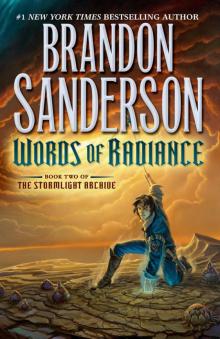 Words of Radiance
Words of Radiance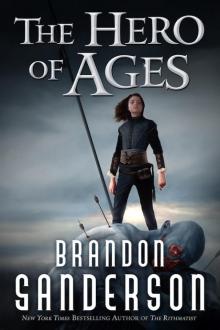 The Hero of Ages
The Hero of Ages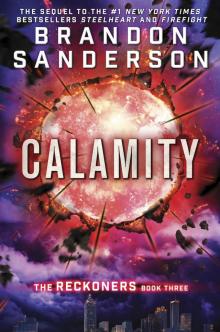 Calamity
Calamity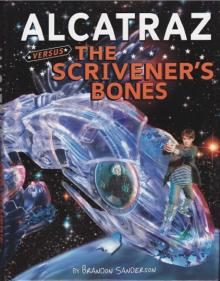 Alcatraz Versus the Scrivener's Bones
Alcatraz Versus the Scrivener's Bones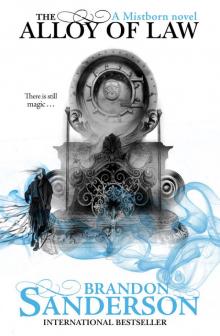 The Alloy of Law
The Alloy of Law The Emperors Soul
The Emperors Soul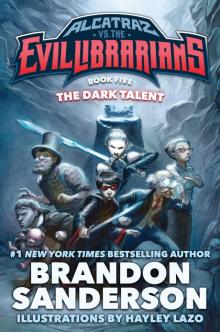 The Dark Talent
The Dark Talent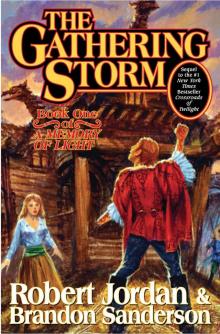 The Gathering Storm
The Gathering Storm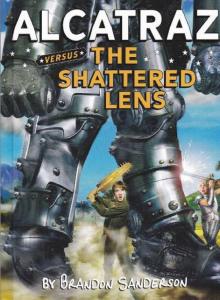 Alcatraz Versus the Shattered Lens
Alcatraz Versus the Shattered Lens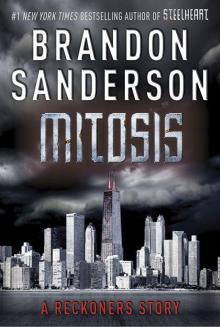 Mitosis
Mitosis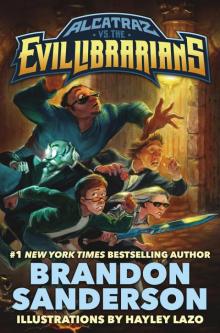 Alcatraz vs. The Evil Librarians
Alcatraz vs. The Evil Librarians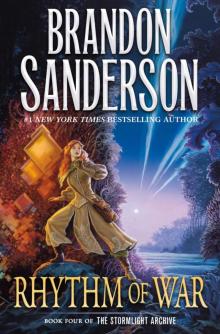 Rhythm of War (9781429952040)
Rhythm of War (9781429952040)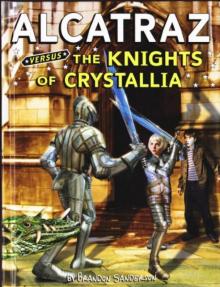 Alcatraz Versus the Knights of Crystallia
Alcatraz Versus the Knights of Crystallia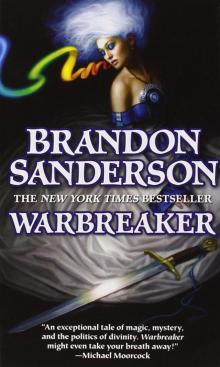 Warbreaker
Warbreaker Firstborn
Firstborn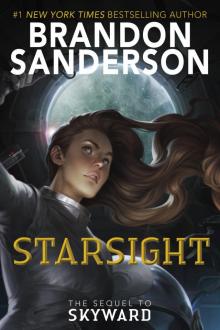 Starsight
Starsight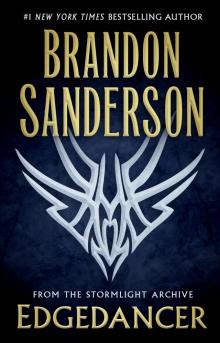 Edgedancer
Edgedancer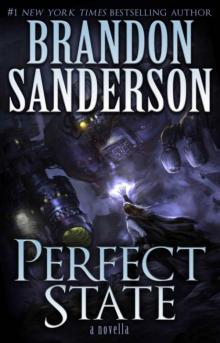 Perfect State
Perfect State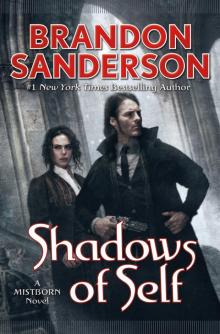 Shadows of Self
Shadows of Self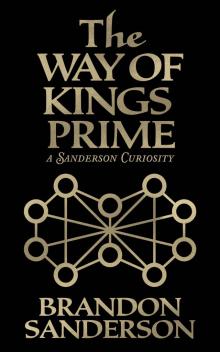 The Way of Kings Prime
The Way of Kings Prime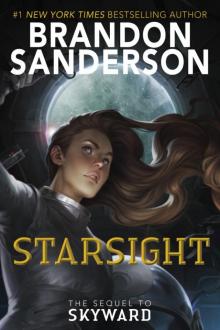 Starsight (US)
Starsight (US)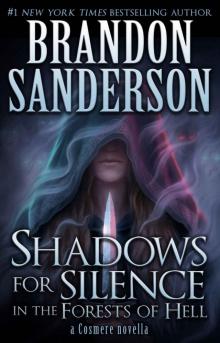 Shadows for Silence in the Forests of Hell
Shadows for Silence in the Forests of Hell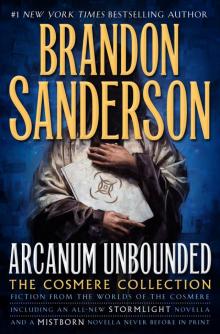 Arcanum Unbounded: The Cosmere Collection
Arcanum Unbounded: The Cosmere Collection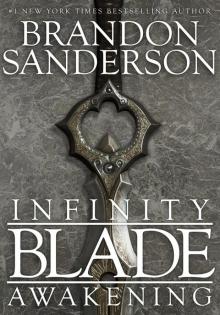 Awakening
Awakening Firefight
Firefight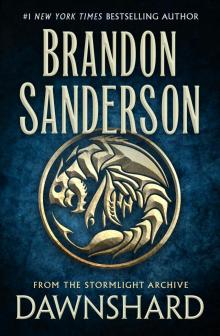 Dawnshard
Dawnshard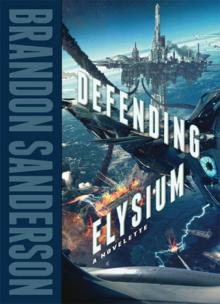 Defending Elysium
Defending Elysium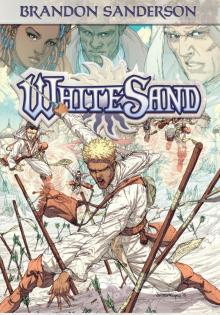 White Sand
White Sand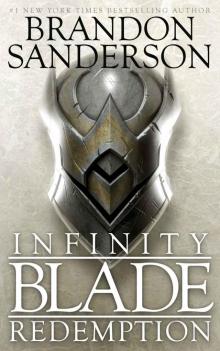 Infinity Blade: Redemption
Infinity Blade: Redemption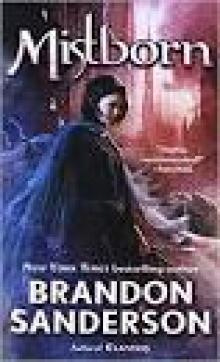 The Final Empire
The Final Empire Skyward
Skyward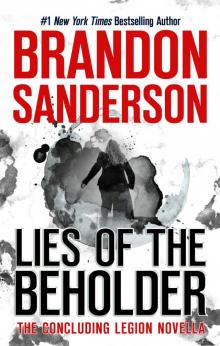 Lies of the Beholder
Lies of the Beholder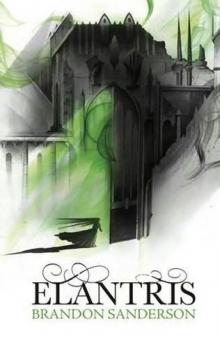 Elantris e-1
Elantris e-1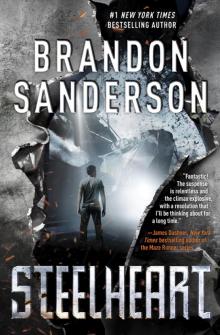 Steelheart r-1
Steelheart r-1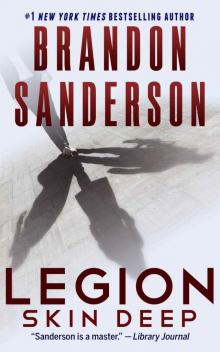 Legion: Skin Deep
Legion: Skin Deep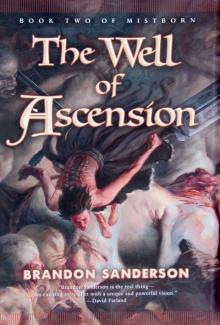 Well of Ascension
Well of Ascension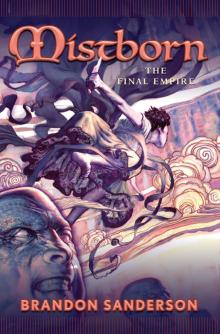 Mistborn
Mistborn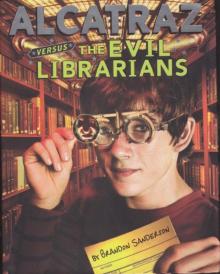 Alcatraz versus the Evil Librarians
Alcatraz versus the Evil Librarians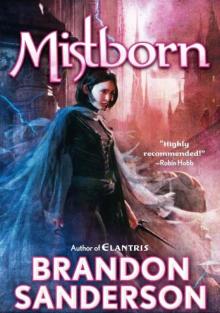 The Final Empire m-1
The Final Empire m-1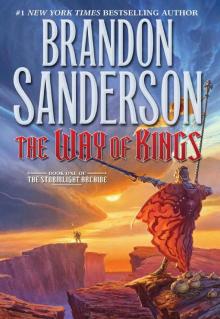 The Way of Kings (Stormlight Archive, The)
The Way of Kings (Stormlight Archive, The)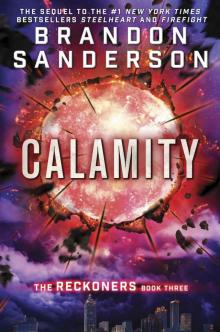 Calamity (The Reckoners)
Calamity (The Reckoners)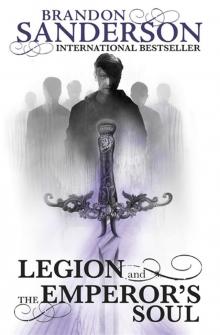 Legion and the Emperor's Soul
Legion and the Emperor's Soul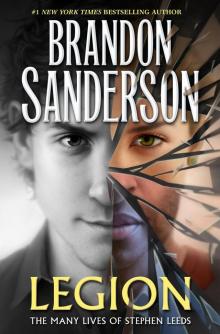 Legion: The Many Lives of Stephen Leeds
Legion: The Many Lives of Stephen Leeds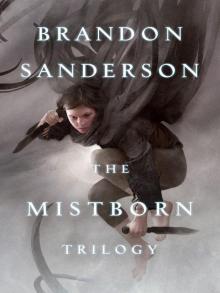 The Mistborn Trilogy
The Mistborn Trilogy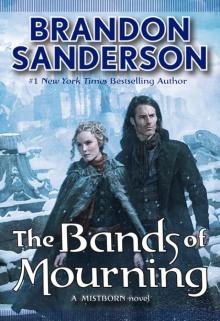 Bands of Mourning
Bands of Mourning Alcatraz
Alcatraz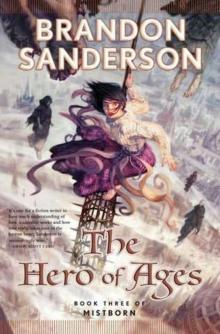 The Hero of Ages m-3
The Hero of Ages m-3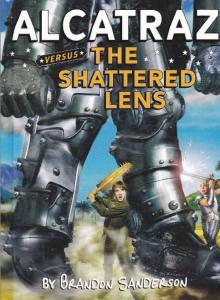 Alcatraz vs. the Shattered Lens
Alcatraz vs. the Shattered Lens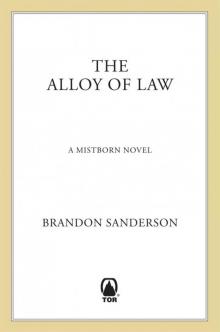 The Alloy of Law: A Mistborn Novel
The Alloy of Law: A Mistborn Novel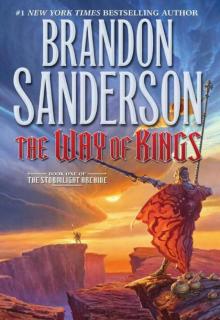 The Way of Kings sa-1
The Way of Kings sa-1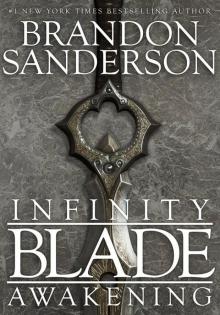 Infinity Blade: Awakening
Infinity Blade: Awakening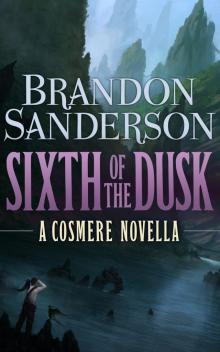 Sixth of the Dusk
Sixth of the Dusk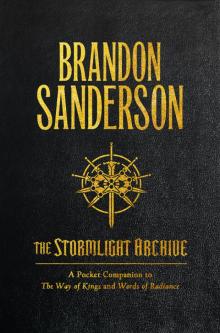 The Stormlight Archive
The Stormlight Archive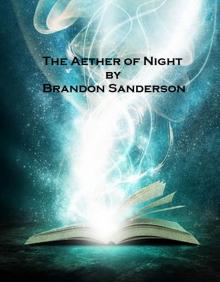 The Aether of Night
The Aether of Night